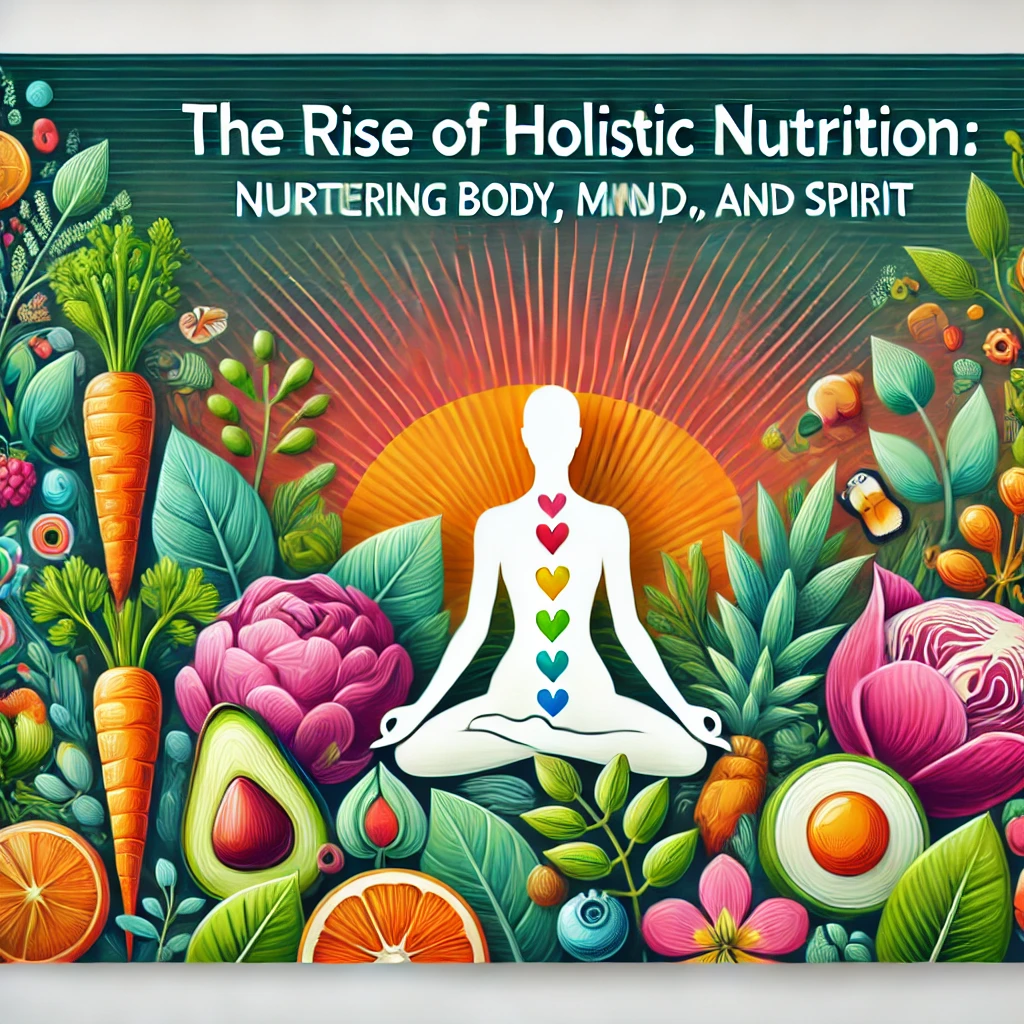In the bustling metropolis of contemporary life, the quest for well-being has never been more paramount. As we navigate the fast-paced modern world, the demand for comprehensive health solutions is burgeoning. Enter the holistic nutritionist, a beacon of integrative health, advocating for a return to the roots of nourishment. But what exactly does a holistic nutritionist do, and why are they becoming an essential part of our wellness journey?
The Essence of Holistic Nutrition
Holistic nutrition is not merely about what we eat; it encompasses the intricate relationship between diet, lifestyle, and mental well-being. Unlike traditional nutritionists who primarily focus on dietary intake, holistic nutritionists adopt a more expansive approach. They delve into the interplay of various factors such as emotional health, environmental influences, and physical activity, crafting personalized wellness plans that address the individual as a whole.
The cornerstone of holistic nutrition lies in its emphasis on natural and unprocessed foods, drawing from ancient dietary practices while incorporating modern nutritional science. This approach champions the consumption of organic produce, whole grains, lean proteins, and healthy fats, whilst eschewing highly processed and synthetic foods. It’s a philosophy that respects the body’s innate wisdom, supporting its ability to heal and thrive through natural means.
A Day in the Life of a Holistic Nutritionist
To understand the profound impact of holistic nutrition, one must step into the shoes of a holistic nutritionist. Their day often begins with a mindfulness practice, such as meditation or yoga, to ground themselves before attending to their clients. This personal ritual is not just for their benefit but also serves as a model for the balanced lifestyle they advocate.
Client consultations are the heart of a holistic nutritionist’s work. These sessions are markedly different from the quick, impersonal meetings one might expect at a conventional dietician’s office. Holistic nutritionists spend considerable time understanding their clients’ unique stories, exploring everything from dietary habits and stress levels to sleep patterns and emotional well-being. It’s a deeply empathetic process, where the nutritionist acts as a detective, piecing together the puzzle of each individual’s health.
The Holistic Approach to Common Health Issues
Holistic nutritionists are often sought after for their expertise in addressing chronic conditions such as digestive disorders, hormonal imbalances, and autoimmune diseases. Their strategies are multifaceted, typically involving dietary adjustments, supplementation, and lifestyle modifications.
Take, for instance, digestive health. Instead of solely prescribing medication to alleviate symptoms, a holistic nutritionist will investigate potential food sensitivities, recommend gut-healing foods like bone broth and fermented vegetables, and suggest stress-reducing practices such as mindfulness and deep-breathing exercises. This comprehensive approach not only alleviates symptoms but also tackles the root cause of the issue.
The Growing Popularity of Holistic Nutrition
The burgeoning interest in holistic nutrition can be attributed to several factors. Firstly, there is a growing disenchantment with the conventional medical model, which often prioritizes symptom management over root cause resolution. Secondly, the rise of chronic diseases has highlighted the limitations of a solely pharmacological approach to health, spurring individuals to seek alternative therapies.
Moreover, the wellness movement has gained significant momentum, propelled by influencers and celebrities who advocate for holistic living. This cultural shift towards prioritizing mental and emotional health, along with physical health, resonates deeply with the principles of holistic nutrition.
Challenges and Misconceptions
Despite its rising popularity, holistic nutrition is not without its challenges. Critics often argue that it lacks the rigorous scientific backing that conventional nutrition boasts. However, this perspective is gradually changing as more research underscores the efficacy of holistic practices.
Another common misconception is that holistic nutrition is prohibitively expensive or elitist. While it’s true that organic foods and supplements can be costly, holistic nutritionists often work with clients to create budget-friendly plans, emphasizing that healthful living is accessible to all.
The Future of Holistic Nutrition
Looking ahead, the future of holistic nutrition appears bright. As awareness grows and the body of supportive research expands, holistic nutritionists are likely to play an increasingly integral role in healthcare. Integrative clinics, where conventional and holistic practitioners collaborate, are becoming more commonplace, reflecting a paradigm shift towards truly comprehensive health care.
In conclusion, the rise of holistic nutrition represents a promising evolution in our approach to health. By addressing the interconnectedness of body, mind, and spirit, holistic nutritionists offer a pathway to profound, lasting wellness. As we continue to seek harmony amidst the chaos of modern life, the wisdom of holistic nutrition provides a guiding light towards a healthier, more balanced existence.





